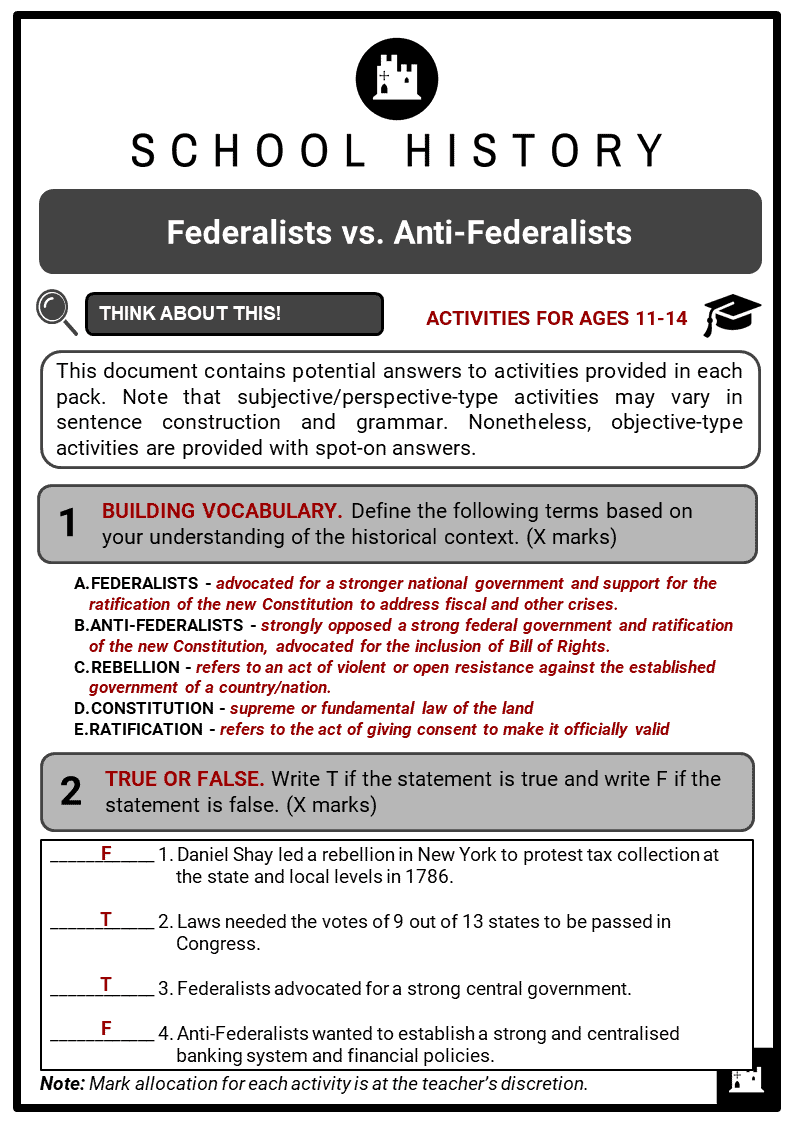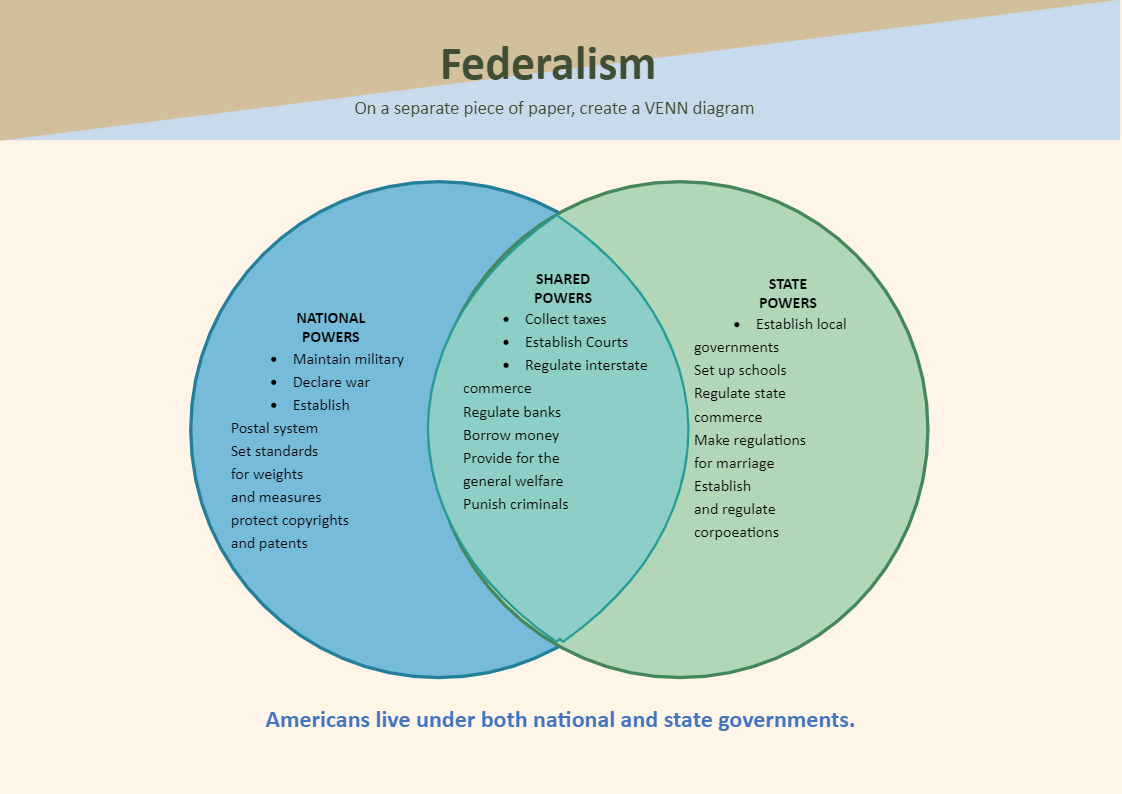Federalists vs. Anti-Federalists: Key Differences Worksheet

The Debate: Federalists vs. Anti-Federalists

The formation of the United States' foundational government structure was not without its share of intense debate and disagreement. At the heart of this debate were two distinct groups: the Federalists and the Anti-Federalists. Understanding their differences is key to grasping the intricacies of America's early political landscape.
Federalist Ideology

Strengthening the Central Government

The Federalists, led by figures like Alexander Hamilton, James Madison, and John Jay, advocated for a strong federal government. They believed that:
- A central government was crucial to unify the newly independent states.
- It would provide defense and security against both internal and external threats.
- It could facilitate a more efficient economic system through regulation and control.
👉 Note: Federalists supported the ratification of the Constitution to replace the Articles of Confederation, which they deemed ineffective for governing the nation.
Economic Vision

Their vision included:
- Promoting industrial development and commerce.
- Encouraging economic unity across states.
- Establishing a national bank to help stabilize and manage the country's finances.
Constitutional Structure

The Federalists favored:
- The implementation of checks and balances within the government to prevent any single branch from becoming too powerful.
- A strong executive branch with significant powers, akin to a monarch, but with checks and balances to prevent abuse.
Anti-Federalist Beliefs

Fears of Overreaching Power

On the other side of the aisle, the Anti-Federalists, including prominent figures like Patrick Henry and George Mason, argued for:
- Local control over central governance. They feared a distant government would be out of touch with the needs of the people.
- Protection of individual rights, worrying that a strong central government could become tyrannical.
⚠️ Note: Anti-Federalists were particularly concerned about the lack of a Bill of Rights in the original Constitution.
Constitutional Concerns

They emphasized:
- The importance of state sovereignty.
- Criticism of the Constitution for lacking specific protections against government overreach.
- The potential for a powerful central government to infringe on state and individual rights.
Key Differences Between Federalists and Anti-Federalists

| Aspect | Federalists | Anti-Federalists |
|---|---|---|
| Government Structure | Strong national government | Emphasis on state sovereignty |
| Economy | Supported national economic policies and centralization | Favored local economies and autonomy |
| Constitutional Ratification | Promoted the ratification of the Constitution without changes | Sought amendments before ratification |
| Bill of Rights | Initially opposed, but agreed as a compromise | Essential for protection against federal power |

Their Influence Today

The debates between Federalists and Anti-Federalists set the stage for many of the political conflicts we see in America today:
- The ongoing discussions on the balance between state and federal powers.
- The protection of individual rights against government intrusion.
- The interpretation of the Constitution, whether strict or flexible.
🌐 Note: The Federalist Papers, a collection of essays written by Federalists in support of the Constitution, are still referenced in modern constitutional law debates.
Both groups played a significant role in shaping the U.S. political system. The Anti-Federalists' push for the Bill of Rights ensured protections that remain vital for individual liberties. Meanwhile, the Federalists' vision of a strong, unified nation led to a robust framework that has endured numerous challenges throughout history.
The debate between Federalists and Anti-Federalists wasn't just about policy; it was about the future of the nation. Their ideas influenced how the government would function, the balance of power, and how American society would develop. Understanding this dynamic provides insight into the foundational arguments that underpin much of American political discourse today.
What was the main goal of the Federalists?

+
The Federalists aimed to create a strong federal government that could unify the states, protect the nation from threats, and ensure economic stability and growth.
Why did the Anti-Federalists oppose the Constitution?

+
They were primarily concerned with preserving state sovereignty and ensuring protections for individual rights, fearing that a strong central government might infringe upon these.
How did the Bill of Rights come to be?

+
The Bill of Rights was added to the Constitution as a compromise to secure the support of the Anti-Federalists during the ratification process. It was designed to provide explicit protections for individual liberties.



